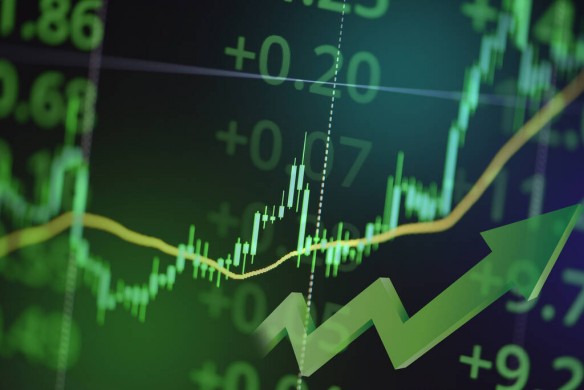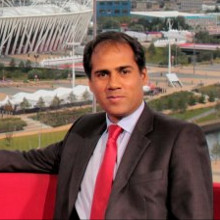Only a handful of traders ever master the rare combination of skill, discipline, timing, and risk management needed to consistently profit from the financial markets. These elite traders have not only beaten the market—they’ve built multi-billion-dollar empires from it. But how exactly did they do it? And what lessons can everyday traders learn from their journeys?

In this article, we explore the stories of some of the wealthiest and most influential traders in modern history. Their experiences reveal powerful principles that can guide both beginners and seasoned traders toward smarter, more disciplined trading.
Steve Cohen—The Master of Discipline and Market Insight
With an estimated net worth of $19.8 billion, Steve Cohen, founder of Point72 Asset Management, built his career on sharp analysis and disciplined trading. Cohen began at Gruntal & Co., where his trades generated millions in daily profits. His hedge fund, SAC Capital, later became one of the most successful in Wall Street history.
Cohen’s strength has never been about one famous trade; it’s about consistency. He blends fundamental analysis, market sentiment, and technical indicators while maintaining strict risk controls.
Key Lessons from Steve Cohen
- Deep research leads to informed trades.
- Discipline is essential—cut losses quickly and objectively.
- Adaptability ensures longevity in unpredictable markets.
Michael Platt—The Technologist of Modern Hedge Funds
Worth about $18 billion, Michael Platt of BlueCrest Capital Management is widely regarded as one of the best traders of his generation. Starting his career in derivatives trading at JPMorgan, he eventually co-founded BlueCrest in 2000. The fund grew into a multi-strategy giant managing more than $35 billion at its peak.
Platt’s genius lies in balancing discretionary macro insight with advanced quantitative systems. In 2015, he famously returned external investor funds to gain full flexibility, a move that helped him achieve exceptional returns.
Key Lessons from Michael Platt
- Combine human intuition with quantitative models.
- Enforce tight risk controls—losses of even 3% can trigger adjustments.
- Build strong teams; great traders thrive in collaborative environments.
Ray Dalio—The Billionaire Who Systematized Investing
With a net worth of $15.4 billion, Ray Dalio founded Bridgewater Associates, now one of the world’s largest hedge funds. Dalio’s rise began surprisingly early—he placed his first trade at age 12 after getting tips from golfers he caddied for.
Dalio is known for predicting the 2008 financial crisis and for pioneering a systematic investment approach rooted in data, principles, and radical transparency.
Key Lessons from Ray Dalio
- Diversification is the foundation of risk management.
- Use data and logic—not emotions—to make decisions.
- Develop principles to guide your behavior and investment choices.
George Soros—The Man Who ‘Broke the Bank of England’
George Soros, worth roughly $8.6 billion, is perhaps the most famous trader on Earth. His legendary 1992 short bet against the British pound earned him $1 billion in a single day.
Soros built his wealth through the Quantum Fund, which achieved an astonishing 20% annualized return over four decades. His approach is grounded in a unique philosophy called reflexivity—the idea that market prices are influenced by traders’ perceptions, not just fundamentals.
Key Lessons from George Soros
- Market psychology drives trends and creates opportunities.
- Cut losses fast and let winners run.
- Be willing to take bold, calculated risks when conviction is high.
Joe Lewis—The Strategic Currency Trader
British investor Joe Lewis, with a net worth of $6.3 billion, made much of his fortune through currency trading. Like Soros, he profited massively from the 1992 Black Wednesday event.
Through his Tavistock Group, Lewis diversified into real estate, hospitality, agriculture, and sports—including ownership of Tottenham Hotspur.
Key Lessons from Joe Lewis
- Think long-term and identify undervalued assets.
- Diversification stabilizes wealth across market cycles.
- Patience is a trader’s biggest advantage.
Stanley Druckenmiller—The Macro Trading Legend
With a net worth of $6.2 billion, Stanley Druckenmiller is best known for working alongside Soros during the British pound short. He is a top-down macro trader who uses leverage, long/short positions, and futures to express high-conviction ideas.
Druckenmiller’s success rests heavily on understanding global economic trends and managing risk with precision.
Key Lessons from Stanley Druckenmiller
- Stay informed about macroeconomic forces.
- Carefully size positions to control risk.
- Be flexible—market conditions can shift quickly.
Carl Icahn—The Fearless Activist Investor
Carl Icahn, valued at roughly $5.9 billion, built his fortune through activist investing. Known for pressuring companies to unlock shareholder value, Icahn made millions by targeting undervalued firms and pushing for structural changes.
His approach relies on deep understanding of corporate governance, mispricing, and business psychology.
Key Lessons from Carl Icahn
- Look beyond charts—study the companies themselves.
- Patience and long-term thinking pay off.
- Active involvement can uncover hidden value.
What Really Drives Trading Success?
Despite their differing methods, one theme runs through all these traders’ stories: skill alone is not enough. Even the greatest traders rely on:
- Psychological discipline
- Rigorous risk management
- Continuous learning
- Patience and strategic thinking
- Adaptability in changing markets
As financial expert Johnathan Maverick points out, the trading world is also shaped by luck and randomness. Even top traders acknowledge that no strategy works forever, and even the best can be humbled by the market.
Final Thoughts
These billionaire traders succeeded through a blend of insight, discipline, innovation, and resilience. Their stories offer a roadmap for anyone looking to refine their trading approach.
Whether you’re inspired by Soros’s boldness, Dalio’s systematic thinking, Cohen’s discipline, or Lewis’s long-term vision, the message is clear:
master your psychology, manage your risks, learn continuously, and stay adaptable.
This is how great traders are made—and how fortunes are built.
Learn from market wizards: Books to take your trading to the next level


 Hot Features
Hot Features













